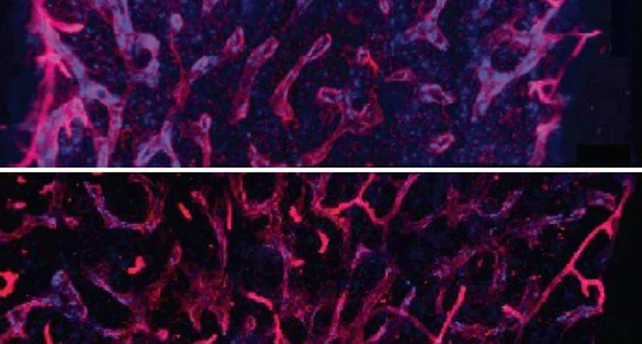Scientists have identified the anti-inflammatory drug anakinra, already used to treat rheumatoid arthritis, as a potential option for rejuvenating blood production in elderly people and reducing the risk of blood-related diseases and health issues.
In tests on mice, the drug was shown to effectively turn back time on the hematopoietic system, which is responsible for blood production.
Anakinra works by blocking the inflammatory signal interleukin-1β (IL-1β), which damages the biological machinery used by the stem cells that develop into blood cells.
Blood production is the responsibility of the bone marrow in mammals such as mice and humans.
By keeping this system in better shape, the researchers suggest, the chemicals and cells it pumps out ought to be more effective at doing their job.
"An aging blood system, because it's a vector for a lot of proteins, cytokines, and cells, has a lot of bad consequences for the organism," says geneticist and senior author Emmanuelle Passegué, from the Columbia University Irving Medical Center in New York.
"A 70-year-old with a 40-year-old blood system could have a longer healthspan, if not a longer lifespan."
As we get older, the part of the bone marrow known as the stromal niche begins to decay, much like the rest of our bodies. Fewer red blood cells and immune cells are produced, and the integrity of these cells are affected, which can lead to problems such as infection, anemia, and blood cancers.
The researchers had previously tried to patch up blood cell production in mice through exercise and diet, without success. In this study they focused on the stromal niche, identifying that inflammation was behind the degradation of this blood production facility – which is where anakinra comes in.

Its application restored blood stem cells to a younger and healthier state, with the effects even more pronounced when the drug was applied earlier in the lives of the mice.
The next step is to determine if the drug can work in humans in the same way.
"These results indicate that such strategies hold promise for maintaining healthier blood production in the elderly," says biochemist Carl Mitchell, from Columbia University Irving Medical Center.
Today's populations live significantly longer on average than they have in the past, which also means more bodies experience emerging states of ill health. Maintaining the functions of multiple body systems in those later years can be a real challenge.
Young blood has already been shown to have a boosting effect in several animal studies, but targeting the production of blood could have even more dramatic effects in terms of halting the decline brought about by age.
As the drug is already approved for human use, the process of getting clinical trials set up should be quicker – and the researchers are keen to take a closer look at exactly what's happening in the hematopoietic system.
"We know that bone tissue begins to degrade when people are in their 50s," says Passegué. "What happens in middle age? Why does the niche fail first?"
"Only by having a deep molecular understanding will it be possible to identify approaches that can truly delay aging."
The research has been published in Nature Cell Biology.
